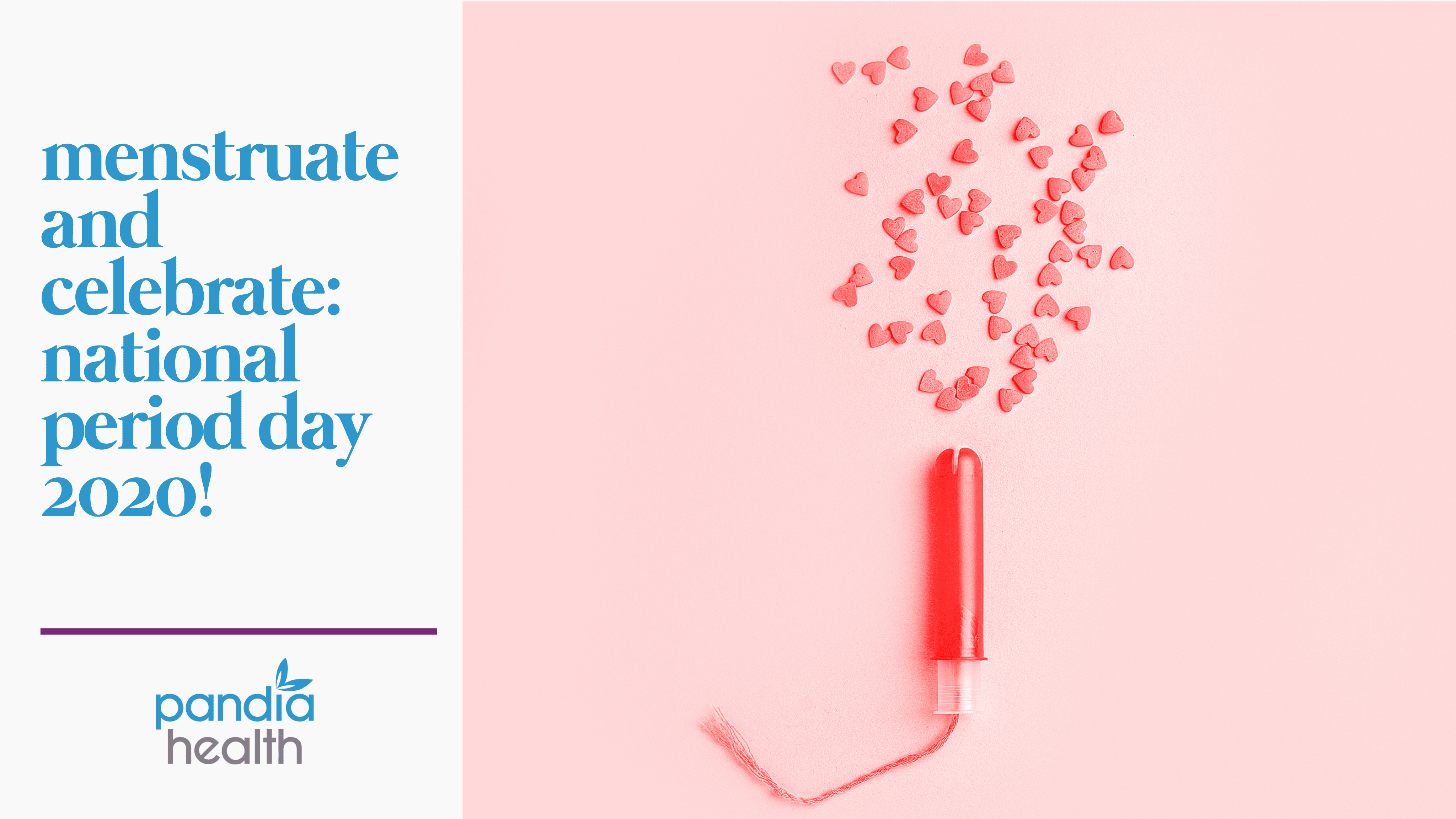Medically reviewed by Sophia Yen, MD, MPH – Written by Pandia Health Editorial Team
On October 19th, 2019, the U.S. celebrated the first ever National Period Day, a day dedicated to raising awareness about period poverty and advocating to reduce the stigma surrounding periods. National Period Day was founded by PERIOD, an organization created by high school students to empower those who menstruate.
Last year, 61 rallies supporting the menstrual movement were held, and five presidential candidates endorsed the day. The success of the first National Period Day indicates how far period activism has come, but there’s still more to be done. Now that the second National Period Day is approaching on October 10th, Pandia Health is here to celebrate with you.
Period Poverty
One of the most pressing issues in the movement for menstrual equality is period poverty, which includes inadequate access to menstrual necessities such as toilets, menstrual hygiene products, water and soap, and waste management systems. According to UNICEF, drinking water and sanitation supplies are absent from half of schools in low-income countries, and 2.3 billion people live without access to basic sanitation services.
Not only does this lack of access pose health problems, including an increased risk of reproductive and urinary tract infections, but it also contributes to the perception of periods as dirty and incapacitating.
In the U.S., basic water and waste management systems are more prevalent, yet period poverty still demands attention. Even though menstrual products are as essential to hygiene as toilet paper or soap, many public schools still don’t provide them for their students. Thanks to youth activism, there are some exceptions.
In California, Illinois, New York, and New Hampshire, legislation has been enacted requiring schools to provide free menstrual products in their restrooms. Similar bills have been introduced in several other states. If you want the schools in your state to join the movement, start advocating! Find others passionate about this issue, and lobby your school boards and state representatives. To start, look into joining your local PERIOD chapter.
Tampon Tax
Period poverty isn’t accidental — policies, usually created by those who don’t menstruate, reinforce menstrual inequality. The tampon tax, also called the “pink tax,” is a sales tax on menstrual products. Sales taxes are typically applied to items that aren’t considered essentials, and personal medical items, including condoms and Viagra, are often exempt.
That tampons and other menstrual products aren’t considered essential reflects a deep-rooted misunderstanding surrounding periods and popularizes the notion that those who menstruate are unimportant. As a result of the tampon tax and other pricing issues, people with uteri often struggle to afford menstrual products. One study found that 64% of low-income women in St. Louis, MO couldn’t afford menstrual products in the past year.
Again, activism is having an impact on the tampon tax. From 2016 to 2018, Nevada, New York, Florida, Connecticut, and Illinois all eliminated the tax, but 30 states still tax menstrual products. Want to change that? Check out PERIOD’s page on the tampon tax, which links to petitions to eliminate the tax in each of those states.
Women in Politics
Unsurprisingly, having more women in positions of power can help make spaces friendlier to those who menstruate. Last year, Rep. Grace Meng, a Democratic Congresswoman from New York, introduced the Menstrual Equity for All Act of 2019. The bills intended to tackle the challenges menstruators face when accessing and affording period products.
It would allow states to use federal grant funds to provide students with free menstrual products in school, people who are incarcerated and detained on the federal, state, and local level would have access to a free and non-rationed supply of period products, and Medicaid would pay for menstrual products for Medicaid recipients. A policy like this would have been unimaginable only a decade ago. That’s why it is critical that anyone who cares about reproductive health votes next month — for better or for worse, reproductive justice and politics are deeply interconnected.
#PeriodsOptional
While there’s nothing shameful about menstruating, sometimes #PeriodPower means having control over when your periods happen. We can honor menstrual equity while also celebrating the scientific innovations that can help eliminate pain and inconvenience for those who experience it.
That’s why Pandia Health provides people with uteri with factual and womxn-developed guidance on how to safely and easily make your #PeriodsOptional using birth control. To get started, sign up for our telemedicine services and get your birth control delivered for FREE. Now go out there and have a bloody fabulous Period Day!
Disclaimer: The above information is for general informational purposes only and is NOT a substitute for professional medical advice. Always seek the advice of your doctor/primary care provider before starting or changing treatment.

